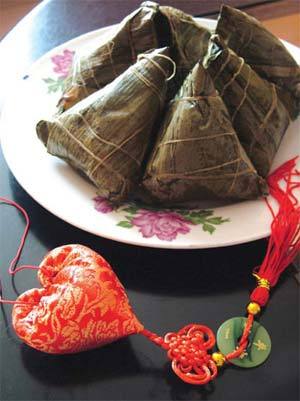The Dragon Boat Festival is just around the corner and while the making of zongzi has been around for years, some mums still follow the custom of embroidering scent bags for their kids and other family members.
 |
|
The Dragon Boat Festival is just around the corner and while the making of zongzi has been around for years, some mums still follow the custom of embroidering scent bags for their kids and other family members. (Photo: China Daily) |
The belief is that these small bags stuffed with various herbs can ward off disease and evil.
Their pleasant fragrance helps refresh the mind, prevent colds, and improves the appetite.
In the past, people from noble families would often be seen with a silk fan covered with calligraphy or landscape paintings, and a small embroidered sweetly-scented bag hanging from his or her belt.
The tradition can be traced back to the Tang Dynasty (AD 618-907) when Princess Tongchang decorated her sedan with five-color perfume bags, leaving a distinct aroma wherever she went. It soon spread to the masses who attached the small bag to their wrists. Young girls made elaborate bags with beautiful embroidery and sent them to their lovers.
Peach-shaped bags were meant for the elderly, to wish them a long life while broom-shaped ones were given to children to drive away evil spirits. Young men and women often chose scent bags shaped like Chinese zodiac signs.
Though the bags come in various shapes, they are all decorated with five-color silk thread, symbolizing wuxing, the five elements of nature in traditional Chinese philosophy.
These scent bags can also be used as decorations in rooms or in cars. While some herbs can keep their scent for months, others last just a few days.
Among the more commonly used scented herbs are huoxiang (ageratum) and baizhi (angelica). Mint is sometimes used to stimulate the nerves and baizhi is used to treat digestive problems.
(China Daily May 24, 2009)